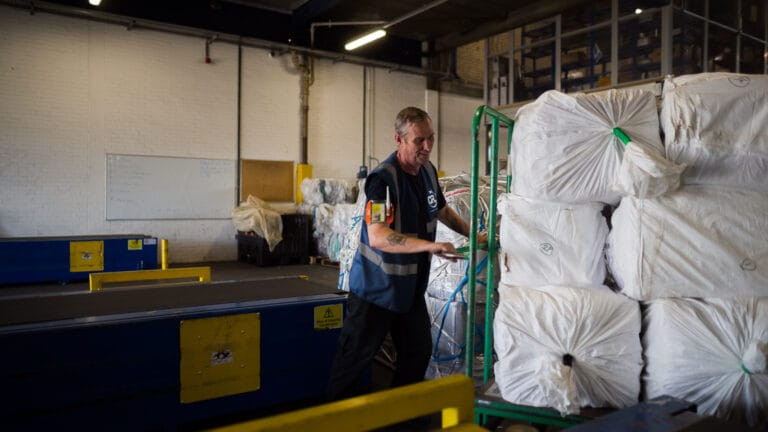CFL, Heathrow’s only on-airport express courier handler, has announced it is introducing a new system, Automated Import Manifest System (AIMS), designed to help Border Force better target suspect incoming packages for inspection.
The new system will automate and simplify manifest information sharing with Border Force and other parties, including HMRC, and will mean less disruption and more consistent collection times for CFL’s customers.
Matthew Ware, CEO at CFL, said; “The integrity and security of all goods moving through CFL is paramount, and as such we have been working with our partners and Border Force to design and implement this new system.
“The scale of our operation means we must have highly optimised systems and processes.
“AIMS is effectively an anti-smuggling net, which helps stop suspect packages at the border. It will work alongside our existing systems and processes to create an even more safe and secure environment for incoming courier product.”
Heathrow Airport processes almost three quarters of all UK air cargo, with an annual value of well over £200bn. CFL handles express imports for 32 airlines, including the recently signed-up Thai Airways.
Today, there are several systems in place to manage the complex administration of import and export processes.
Community Network Services (CNS), who developed the innovative risk technology behind AIMS, enables information sharing between Border Force, HMRC, airlines, couriers, and other airport-based bodies.
Matthew Bradley, Managing Director at CNS, said: “The AIMS technology is based on our CARGOES Customs product, which helps customs authorities and other stakeholders, including CFL, improve efficiency and security by automating clearance processes, reducing manual intervention, and enabling data-driven decision-making.”
The Customs Declaration Service (CDS) is the UK government’s digital platform for managing customs declarations for all goods being imported and exported.
It supports the UK’s international trade by making the overall customs clearance process more efficient and transparent, including compliance with customs declarations and the calculation and collection of duties and taxes.
Border Inspection Revenue and Digital Services (BIRDS) is for managing and supporting customs processes and procedures, such as Low Value Bulk Clearance (LVBC), which streamlines the importation of low-value goods.
BIRDS ensures goods cleared under LVBC comply with relevant regulations, and with the accurate calculation and collection of duties and taxes.
AIMS uses manifest information, provided by importers and shared with Border Force and CFL, to compute a risk factor for all individual packages in incoming shipments, such that only those assessed as suspect need be investigated.
This means Border Force can be much more targeted in their inspections, minimising disruption and enabling a more consistent service for CFL’s customers.
Matthew Ware added; “Feedback to date from trials of the system are very encouraging.
“We intend to launch AIMS formally in the first week of November, with the goal of having 80% of our volume under its control by the end of quarter one next year.”
CFL has been working on its longer-term strategy to create stronger ties with regions outside the EU. Two recent announcements, a major new deal with Thai Airways and a three-year extension to its contract with Etihad Airways, will see more trade from Asia and the Middle East.
In addition, the company has ambitions to expand the scope of its business to include the United States.
Ware noted; “Building stronger ties with countries in areas of major economic growth opens up opportunities for UK businesses to trade globally, as well as giving faster access to UK markets for imported goods.
“But with that comes the need for even tighter control over the integrity and security of those goods.
“This is what AIMS delivers, helping Border Force to be more efficient in targeting suspect activity.”
CFL was formed forty years ago as Heathrow became the world’s premier long-haul airport.
The growth of the on-board courier product, which allowed unaccompanied packages to travel in the hold as unaccompanied luggage, led to huge pressure on the passenger terminals.
As a result, Heathrow looked to move the courier product out of passenger terminals and the industry created CFL to manage this.





